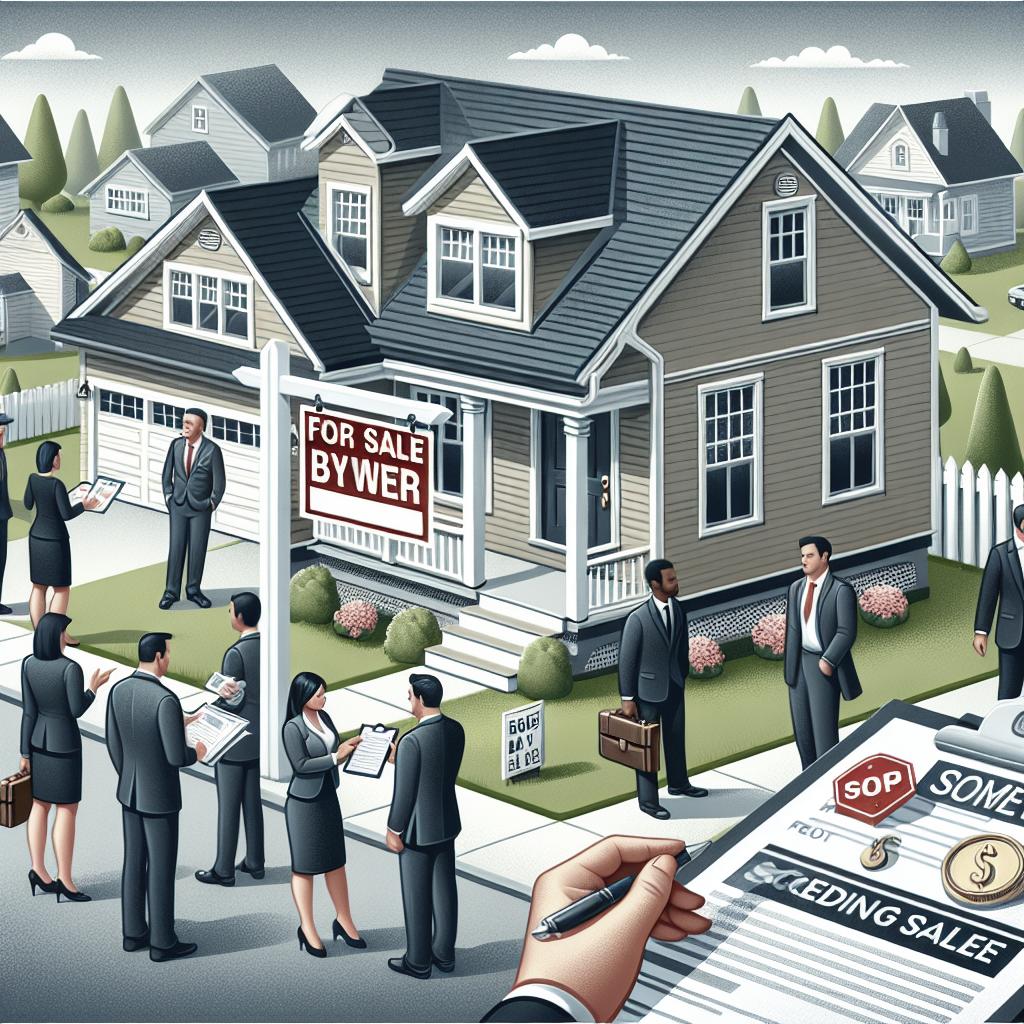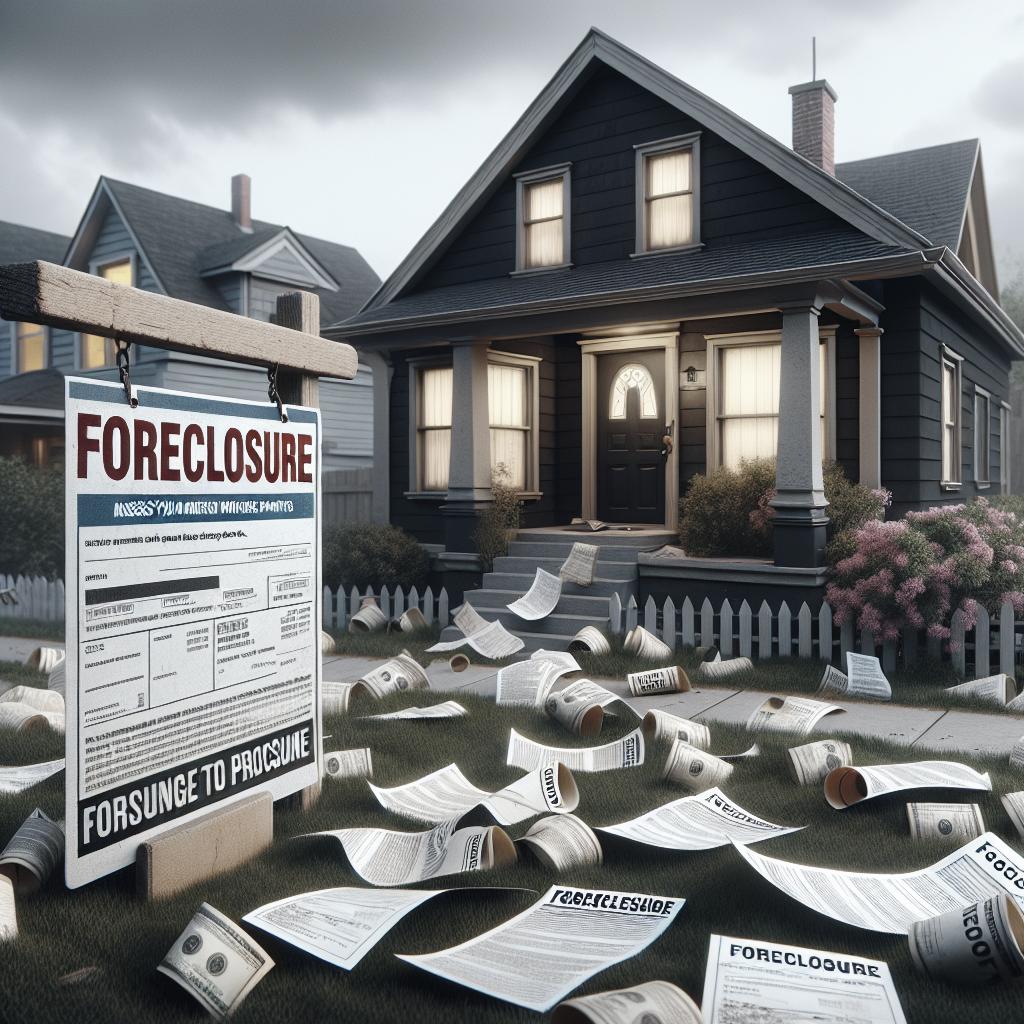html
How to Sell Your House Without a Realtor
Selling a house without a Realtor can be a smart move if you’re looking to save money on commissions and have more control over the process. This post explores three main options for selling your home on your own: selling to a cash buyer, working with a real estate attorney, or navigating the open market using a For Sale By Owner (FSBO) approach. We’ll also guide you through the steps involved in each method, provide additional expert insights, discuss common questions, and explore potential benefits and trade-offs. By understanding the nuances of each selling method, you’ll be better equipped to choose the one that best fits your needs and goals.
Your three main options to sell a house without a Realtor include:
When it comes to selling your home without the aid of a Realtor, you have three primary avenues to explore. First, you might consider selling directly to a cash buyer, which can streamline the process and offer a quick transaction. Alternatively, you could work with a real estate attorney to ensure legal compliance while managing the sale independently. Finally, embracing the For Sale By Owner (FSBO) route allows you to manage the sale while cutting out the middleman, which can potentially maximize your profits.
Each of these options comes with its own set of advantages and challenges, which means it’s vital to weigh them carefully. Whether speed, legal assurance, or personal involvement is your top priority, understanding the intricacies of each option can help you make an informed decision.
Option 1: Sell your house to a cash buyer
Pros
Selling to a cash buyer provides a swift route to closing the deal, often within a matter of days. This option is highly appealing to sellers who are looking for a quick sale without the hassle of traditional buyer financing. The streamlined process also eliminates the need for appraisals and inspections, which can otherwise prolong the selling process.
Moreover, cash buyers usually purchase properties “as-is,” saving you the time and money required for repairs or renovations. This can be particularly beneficial if your home needs significant updates or if you’re looking to sell quickly due to personal circumstances.
Cons
On the downside, cash buyers often expect a discount on the property’s market value. This means you might have to settle for less money than you would in a traditional sale. Additionally, because cash offers are often lower than financed ones, you might not maximize your home’s sale potential.
Finding reputable cash buyers can also pose a challenge, as there are many investors in the market with varying levels of trustworthiness. It’s important to research and verify potential buyers to ensure you’re dealing with credible individuals or companies.
Option 2: Sell with a real estate attorney
Pros
Enlisting a real estate attorney allows you to navigate the selling process with expert legal guidance. This ensures compliance with state and local laws, helping to prevent legal pitfalls. Attorneys can handle complex legal documentation and negotiations, which can be quite advantageous for sellers unfamiliar with real estate law.
An attorney’s involvement can also lend credibility to your sale, potentially making buyers feel more secure about the transaction. This can be particularly helpful if your property needs to clear up legal issues such as title disputes or liens.
Cons
The primary disadvantage of involving a real estate attorney is cost. Attorney fees can add up quickly, and while you might save on Realtor commissions, the legal costs can offset those savings. You should carefully consider your budget and understand the fee structure before proceeding.
Additionally, while attorneys are versed in legal matters, they might not offer the same marketing reach or negotiation skills that an experienced Realtor can provide. This means you might still need to invest time and effort in finding buyers and showcasing your property.
Option 3: Sell your home on the open market without a real estate agent (FSBO)
Pros
The FSBO route can potentially save you money by eliminating agent commissions, which typically range from 5% to 6% of the sale price. Selling your home on your own grants you full control over the selling process, from pricing to marketing strategies.
This approach also allows you to establish a personal connection with potential buyers, offering a unique perspective on your home and neighborhood. This personal touch can be persuasive and help seal the deal with interested parties.
Cons
On the flip side, selling without an agent means you are responsible for every aspect of the sale. This includes setting the right price, marketing, and conducting negotiations—all of which require considerable time and effort.
There is also the risk of overpricing or underpricing your home due to a lack of market knowledge, which can affect your financial outcome. Additionally, without professional marketing networks, reaching a broad pool of potential buyers can be challenging.
14 steps to selling a house without a Realtor
1. Research your home’s market value
Start by examining comparable sales in your area to establish a benchmark for your home’s value. Online tools and real estate websites can provide insights into recent sales, helping you gauge where your property stands in the current market.
2. Set a competitive listing price
Based on your research, set a pricing strategy that aligns with the market while still allowing some negotiation room. Be realistic about your home’s features and limitations to attract serious buyers.
3. Prepare your home for sale
Make necessary repairs and improvements to create a pleasant and inviting environment. Staging your home effectively can make it more appealing and potentially increase offers.
4. Hire a professional photographer
High-quality photos are vital for making a good first impression online. Professional images can showcase your home in the best light, drawing in more interest.
5. List your home with a flat fee MLS service
Gain exposure by listing your property on the Multiple Listing Service (MLS) through a flat fee service. This can prove critical in reaching potential buyers who rely on MLS for market searches.
6. Market your property
Leverage a blend of traditional and online marketing tactics, such as social media, yard signs, and online real estate platforms. Extensive marketing can help you reach a broader audience and entice more offers.
7. Field phone calls and schedule tour requests
Be ready to accommodate calls from interested buyers and set up convenient times for property tours. Responsiveness is key to keeping potential buyers engaged.
8. Follow up with potential buyers
After a showing, prompt follow-up is critical to maintaining interest and moving the buyer forward in the decision-making process.
9. Review offers and negotiate with the buyer
Carefully evaluate offers that come in, considering both price and contingencies. Effective negotiation can help you achieve a favorable sale.
10. Manage contract timelines and due dates
Stay organized by keeping track of all contractual obligations and deadlines throughout the sale process to ensure a smooth transaction.
11. Prepare the required legal disclosures
Protect yourself legally by providing necessary disclosures to the buyer, which may include information about the condition of the property and any known issues.
12. Schedule inspection appointments with the buyer
Coordinate home inspections as part of the buyer’s due diligence period, facilitating assessments and addressing any concerns that might arise from their findings.
13. Renegotiate with the buyer’s agent based on inspection findings
Be prepared to reassess terms if the inspection reveals necessary repairs or updates, which could lead to adjustments in the deal.
14. Navigate the settlement process and close your home sale
Work through the final steps of closing, including managing funds, signing documents, and transferring ownership to complete the sale successfully.
Get a Cash Offer and Compare an Agent’s Estimate
Consider pursuing a cash offer if you’re looking to sell quickly, but also compare this against an agent’s market estimate to ensure you make the best choice for your financial situation.
If you decide to sell with a Realtor®, start here to find a top agent
If you ultimately opt to work with a Realtor, begin by researching and connecting with top agents in your area to find one whose expertise and approach align with your goals.
FSBO Q&A: Additional expert tips and insights
Is it safe to sell your house without a Realtor?
Selling a house on your own can be safe if you take the appropriate steps to ensure legality and transparency. Familiarizing yourself with local property laws and engaging a real estate attorney or consultant can mitigate risks.
What paperwork do I need to sell my house by owner?
Important documents include the property deed, sale contract, property tax statements, and all disclosures relevant to the condition of the home. Being thorough with paperwork helps maintain trust and legality.
What is the top mistake FSBO sellers make?
One common mistake FSBO sellers make is overpricing their property. Setting a realistic price based on current market conditions is vital for attracting serious buyers and ensuring a timely sale.
Weigh the benefits and understand the trade-offs
Balancing the benefits of selling without a Realtor against the potential challenges is essential. While the financial savings can be substantial, the time, effort, and potential legal complexities require careful consideration.
FAQs on selling a house without a real estate agent
Explore commonly asked questions, from understanding tax implications to determining closing costs, to equip yourself with the knowledge needed for a successful FSBO transaction.
Related posts
Can I Sell My House Online for Free?
With the rise of digital platforms, selling your house online is more accessible than ever. Although many services come with fees, it’s possible to leverage free tools and social media to reach buyers at minimal costs.
Final Thoughts
| Option | Pros | Cons |
|---|---|---|
| Sell to a Cash Buyer | Fast transaction, sell “as-is” | Lower offers, finding trustworthy buyers |
| Sell with a Real Estate Attorney | Legal expertise, credibility | Costly, limited marketing |
| FSBO | Save on commissions, control over process | Time-consuming, market knowledge required |


